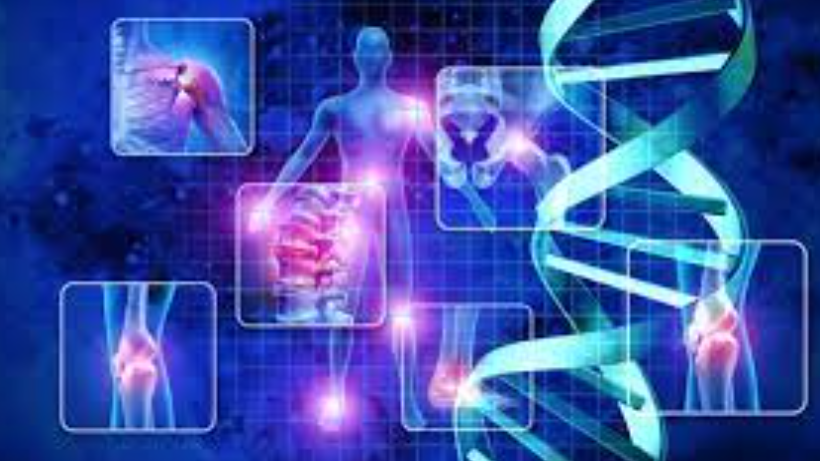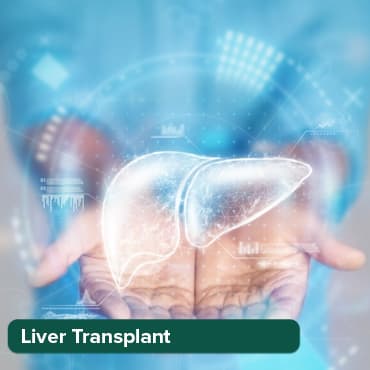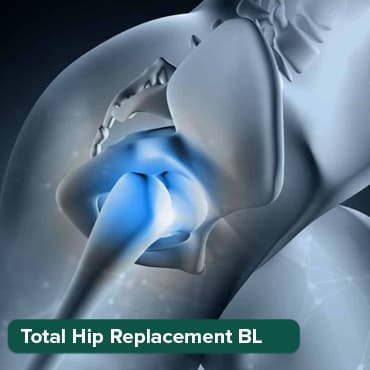
Advances in Rheumatology: What Patients Need to Know
01 Sep, 2023
 Obaidullah Junaid
Obaidullah JunaidIntroduction
Rheumatology, a specialized branch of medicine, focuses on the diagnosis and treatment of disorders affecting joints, muscles, bones, and connective tissues. Over the years, remarkable advancements have been made in the field of rheumatology, revolutionizing the way patients experience and manage their conditions. From innovative treatments to groundbreaking discoveries, this comprehensive exploration will delve into the latest developments that patients should be aware of.
The Evolution of Rheumatology
Rheumatology has come a long way from its early days of limited treatment options and understanding. The field has witnessed rapid growth in recent years, driven by scientific research, technology, and patient-centered approaches. Here are some key advances shaping the landscape of rheumatology:
Transform Your Beauty, Boost Your Confidence
Find the right cosmetic procedure for your needs.

We specialize in a wide range of cosmetic procedures

Biologic and Targeted Therapies
- Traditionally, treatments for rheumatic conditions often included nonsteroidal anti-inflammatory drugs (NSAIDs) and corticosteroids. However, biologic and targeted therapies have transformed the treatment landscape. These medications are designed to target specific molecules involved in the inflammatory process, leading to more precise and effective management of conditions like rheumatoid arthritis and psoriatic arthritis.
- Biologic therapies, often referred to as "biologics," are derived from living organisms and include medications such as tumor necrosis factor (TNF) inhibitors and interleukin (IL) inhibitors. They work by directly interfering with the processes that lead to inflammation and tissue damage.
- Targeted therapies take a more tailored approach, focusing on specific molecules or pathways involved in the immune response. By honing in on these precise targets, these therapies can reduce inflammation and provide relief while minimizing the risk of systemic side effects often associated with traditional treatments.
- The development and success of biologic and targeted therapies have significantly improved the quality of life for many patients living with rheumatic conditions. These treatments offer hope for better symptom management and long-term outcomes.
Personalized Medicine
- Advances in genomics and molecular biology have paved the way for personalized medicine in rheumatology. By analyzing a patient's genetic makeup and biomarkers, doctors can tailor treatments to individual needs, enhancing therapeutic outcomes and minimizing adverse effects.
- Personalized medicine represents a shift away from the one-size-fits-all approach to treatment. It acknowledges that each patient is unique and may respond differently to various medications. Through genetic testing and biomarker analysis, healthcare providers can determine the most suitable treatment options for an individual, increasing the likelihood of success.
- For example, certain genetic markers can predict how a patient will respond to specific medications or whether they are at a higher risk of developing certain side effects. This level of customization not only improves treatment efficacy but also reduces the likelihood of patients enduring unnecessary discomfort or complications.
Telemedicine and Remote Monitoring
- The advent of telemedicine has brought convenience to rheumatology care. Patients can now have virtual consultations with their rheumatologists, making it easier to access medical advice and follow-up care. Remote monitoring tools allow healthcare providers to track disease progression and treatment effectiveness over time.
- Telemedicine has proven particularly beneficial for patients with rheumatic conditions. Many of these conditions are chronic and require ongoing management and monitoring. Telehealth appointments eliminate the need for frequent in-person visits, reducing the burden on patients, especially those with mobility limitations.
- Remote monitoring tools, such as wearable devices and smartphone apps, enable patients to track their symptoms and provide healthcare providers with valuable data for assessing their condition's status. This real-time information allows for timely adjustments to treatment plans and helps patients stay engaged in their care.
Regenerative Therapies
- Stem cell therapy and platelet-rich plasma (PRP) injections are emerging as potential treatments for certain rheumatic conditions. These regenerative therapies harness the body's natural healing mechanisms to promote tissue repair and reduce inflammation.
- Stem cell therapy involves the use of stem cells, which have the unique ability to develop into various types of cells in the body. When administered to damaged tissues, these cells can aid in regeneration and repair. This approach holds promise for conditions where tissue damage is a significant component, such as osteoarthritis.
- PRP injections, on the other hand, involve the use of the patient's own blood plasma, which is rich in growth factors. When injected into the affected joint or tissue, PRP can stimulate healing and reduce inflammation. This therapy is gaining traction for conditions like tendinitis and ligament injuries.
- While regenerative therapies are still under investigation and may not be suitable for all patients or conditions, they represent an exciting avenue for potential treatment options in rheumatology.
Advancements in Imaging
- High-resolution imaging techniques like magnetic resonance imaging (MRI) and ultrasound have revolutionized the diagnosis and monitoring of rheumatic diseases. These technologies provide detailed insights into joint health, aiding in early detection and precise assessment of disease activity.
- MRI uses powerful magnets and radio waves to create detailed images of the body's internal structures, including joints and soft tissues. This technology is invaluable for diagnosing conditions like rheumatoid arthritis, where early detection is crucial for preventing joint damage.
- Ultrasound, often used in conjunction with clinical examination, allows for real-time visualization of joints and surrounding tissues. It can help assess inflammation, fluid buildup, and structural abnormalities. The advantage of ultrasound is that it is non-invasive and can be used for guided injections.
- These imaging advancements not only assist in diagnosis but also play a vital role in treatment planning and monitoring. They enable healthcare providers to make informed decisions and track the effectiveness of interventions over time.
Read also- A Guide to Robotic Surgery
Breakthrough Discoveries
Researchers and scientists continue to uncover new insights into the underlying causes of rheumatic diseases. These discoveries are instrumental in developing novel treatment strategies and improving patient outcomes:
Microbiome and Autoimmunity
Recent studies suggest a strong link between the gut microbiome and autoimmune diseases such as rheumatoid arthritis and lupus. Understanding how gut bacteria influence the immune system opens up avenues for innovative therapies that target the microbiome to modulate disease progression.
The gut microbiome, which consists of trillions of microorganisms residing in the digestive tract, plays a crucial role in regulating the immune system. Dysregulation of this microbiome has been implicated in the development of autoimmune diseases. Researchers are exploring interventions such as probiotics and dietary modifications to restore balance within the gut microbiome, potentially providing a novel approach to managing autoimmune rheumatic conditions.
Epigenetics and Disease Susceptibility
- Epigenetic changes, modifications in gene expression that do not alter DNA sequences, have been implicated in the development of rheumatic conditions. Research in this area could lead to a better understanding of disease susceptibility and the development of targeted interventions.
- Epigenetic modifications can influence how genes are turned on or off, impacting various cellular processes, including those involved in inflammation and immune response. By deciphering these epigenetic changes, researchers aim to identify potential therapeutic targets and strategies to modulate disease activity.
- The exploration of epigenetics offers hope for more precise and effective treatments that address the root causes of rheumatic diseases, rather than merely managing symptoms.
Neuro-Immune Interactions
- The interaction between the nervous and immune systems is gaining attention in rheumatology. Neuro-immune crosstalk plays a role in pain perception and inflammation, shedding light on potential ways to manage pain and improve patient's quality of life.
- Pain is a significant aspect of many rheumatic conditions and can significantly impact patients' daily lives. Understanding the complex interactions between the nervous and immune systems can lead to the development of innovative pain management strategies that target the underlying mechanisms of pain.
- Researchers are exploring various aspects of neuro-immune interactions, including the role of neurotransmitters and neuropeptides in modulating immune responses. By identifying key signaling pathways, they hope to develop interventions that can reduce pain and inflammation more effectively and with fewer side effects.
- Furthermore, the understanding of neuro-immune interactions can have broader implications beyond pain management. It may lead to therapies that not only alleviate symptoms but also address the fundamental processes driving autoimmune and inflammatory diseases.
Conclusion
In conclusion, the journey of rheumatology from its early days to the present has been marked by impressive progress. Patients facing rheumatic conditions today benefit from a more comprehensive and individualized approach to care. With ongoing research and innovation, the future holds even greater potential for improving the lives of those affected by these conditions. As the field of rheumatology continues to evolve, patients can look forward to more effective treatments, enhanced quality of life, and the hope of a brighter tomorrow.
Most popular procedures in India
Atrial septal defect
Upto 80% off
90% Rated
Satisfactory

Coronary Angiogram a
Upto 80% off
90% Rated
Satisfactory

Coronary Angiogram C
Upto 80% off
90% Rated
Satisfactory

Liver Transplant
Upto 80% off
90% Rated
Satisfactory

Total Hip Replacemen
Upto 80% off
90% Rated
Satisfactory

Wellness Treatment
Give yourself the time to relax
Lowest Prices Guaranteed!

Lowest Prices Guaranteed!




